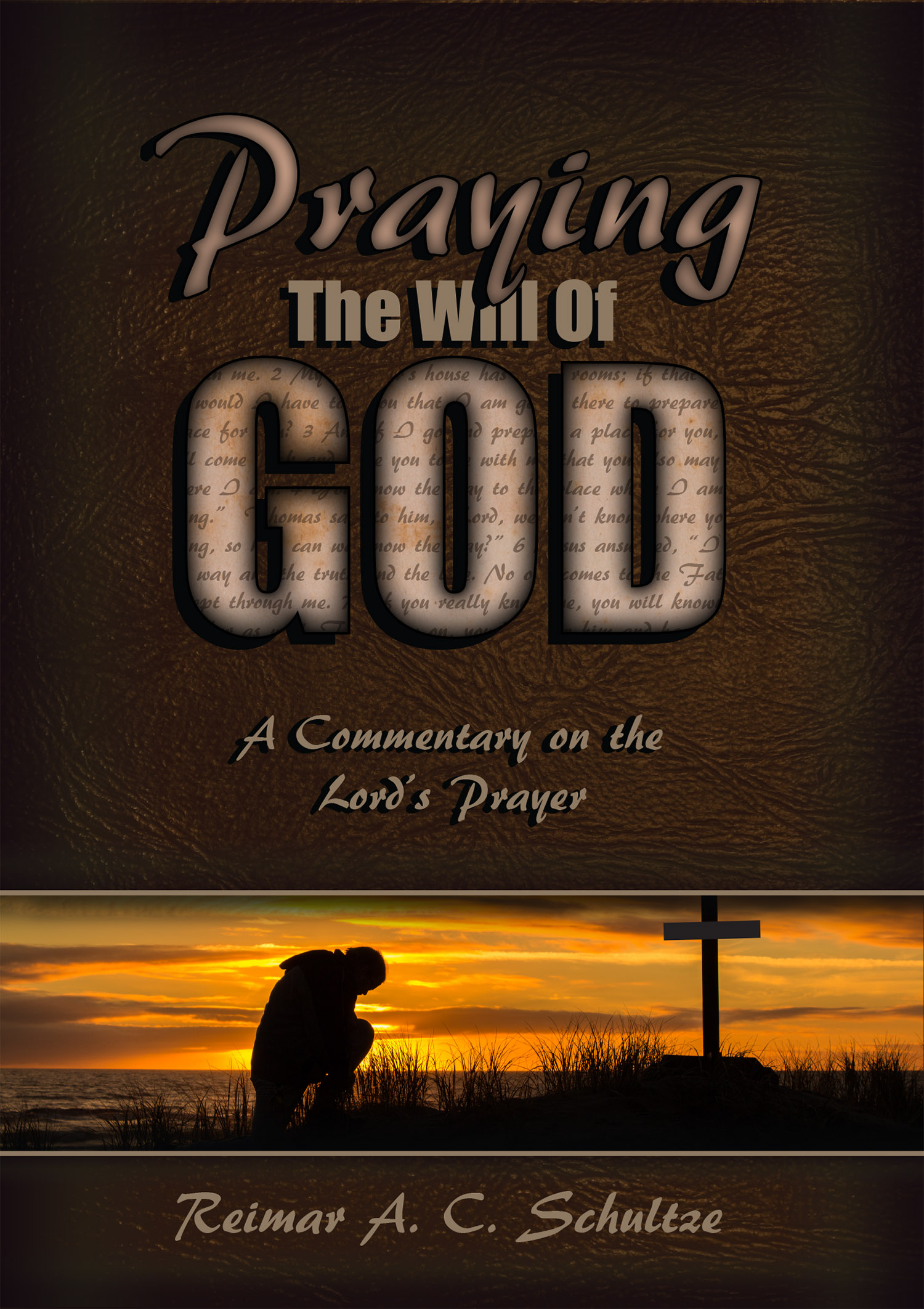
|
I AM Love AUDIO MP3 FORMAT Listen to 11 hours of Pastor Schultze's autobiography in MP3 format.
|
|
Now That You Are Born-Again: What Next? This booklet fits in your shirt pocket and will help Christians and new converts know what they are to do once they are saved. In this booklet, Pastor Schultze also shares the essential spiritual disciplines for a successful walk with God: Daily reading of the Bible, prayer, consistent witnessing , obedience.
|
|
Praying the Will of God The Lord's Prayer is an answer to His disciples' request: "Lord teach us to pray." As a result, our Lord and Savior gave us this prayer to take away all doubt as to which prayers He will answer and which He will not answer. However, this commentary is not only a call to pray rightly, but it also lays the foundation for Christian theology at its best." - Pastor Schultze.
|
|
The Ten Commandments are a gift from God to man, so that man may know how to live with his Maker and with other men. These laws are a moral compass for every soul, a code of ethics for every nation. To neglect them is to invite misery. To heed them is light and joy." - Pastor Schultze.
|
|
Join Pastor Schultze on his amazing journey from "nothing...to all things."
$20.00 Purhase online at our bookstore: |
![]()
CALL TO OBEDIENCE #493
Reimar A.C. Schultze
Past Issues of the Call To Obedience
"How To Connect With God"
Reimar A. C. Schultze
In Genesis 3, we find God driving man out of the garden of His presence. But in Luke 15, we find a chapter of joy through the recovery of lost things: a lost coin, a lost sheep and a lost son. Here we find the most beautiful picture of man coming back into the presence of his Maker in an image that Jesus painted Himself with these words: And he [the son] arose and came to his father. But when he was still a great way off, his father saw him and had compassion, and ran and fell on his neck and kissed him (Luke 15:20). This is the story of the Prodigal Son, a skillful narrative of the rise and progress of religion in the soul of man causing him to reconnect with God. And if you are saved, you also have experienced the heavenly Father falling on your neck, kissing you; and you also have received new spiritual shoes, a ring on your finger and a robe of righteousness as a witness and testimony to be kept clean for the great wedding feast.
Amazingly, this story is only recorded by Luke, a non-Jewish, Syrian physician, who never met Jesus, but was Paul’s companion in evangelism. Luke collected all he could of the life of Jesus and then decided that this story needed to be included to be broadcast to all the world. Oh, what a debt we owe to Luke—for the whole of the patriarchs, the prophets, and the apostles is encapsulated in this scene described in Luke 15:20.
And it is this image alone which has inspired countless songs of the love of God. Here are just the first lines of two of them:
The love of God is greater far than tongue or pen can ever tell, it goes beyond the highest star, and reaches to the lowest hell...
Come, ye sinners, poor and needy, weak and wounded, sick and sore; Jesus ready stands to save you, full of pity, love and power...
Yet, let us now look at the richness of the doctrine contained in this parable in reference to evangelism. It shows the conditions that are necessary for this God/man embrace to occur over and over again. It is a clear picture of what makes God move to embrace man and what does not. Therefore, we can call this a vital, mini personal pocket manual for evangelism. Here are its major points:
1. Notice that it is clearly stated here that the father (God) does not move to save the son until the son moves first. God, on His part, has already laid the groundwork for this kind of meeting through the blood sacrifice and now, it is up to all of lost humanity to make the next move. It is a myth that man has to do nothing to obtain his salvation and that God does it all. This is not so. Here, we learn that God will not move until the transgressor begins to move away from sin. In other words, the call of God is: ...Return to Me, and I will return to you... (Malachi 3:7). Hence, since the institution of the blood sacrifice, the ball is in every man’s court.
2. Yet, we also learn that although the father does not move until the prodigal moves, he is anxiously looking out the window, waiting for him to move. Our heavenly Father is looking out and will be waiting, as long as any of His children are astray.
3. For this whole process to start, the son had to first come to himself. Before a man can come to God, he must first come to himself, to his senses where he sees his naughtiness, his selfishness and his rebellious spirit. Have you ever come to yourself?
4. Then, this should lead him to brokenness, for without it, he will not repent. The sacrifices of God are a broken spirit, A broken and a contrite heart—These, O God, You will not despise (Ps. 51:17). Until man becomes inwardly broken, God will not be able to do anything with him. Until he is broken, he will not sincerely confess his sin towards his heavenly Father nor his fellow man. Do not try to get sheep into the sheepfold who having been found are not willing to lay their heads upon the shoulders of the shepherd even though they may say the right prayers and believe the right doctrines; they will not be saved because they are not prepared to obey God. They may go to church, but they will not be part of the body of Christ. Being a church member and being part of the body of Christ are two different things. For the former, you only have to believe in Christ. For the latter, you must abide in Christ. Brokenness begins the whole process of abiding. For example, this is the way Peter’s life with Christ began. He fell down and said: ...Depart from me, for I am a sinful man, O Lord! (Luke 5:8). He had come to himself; he was broken and confessed his sin. And this is the way the church age started. When Peter preached on Pentecost, people were smitten, struck to the heart, broken, and asking: ...what shall we do? (Acts 2:37). Such brokenness, such yieldedness, such holy enthusiasm was within them that immediately, 3,000 of them decided to sell all they had and lay it at the apostles’ feet for the common good and they continued daily in praises and prayers. And it was indeed these enthusiasts and none other that were baptized and filled with the Spirit on the birthday of the church. Again, the foundation was brokenness.
We are trying to build churches with unbroken lives. It cannot be done. You see, my beloved friend, there are “stop” signs on the way to the father’s house that have to be turned into “go” signs. One is brokenness, another is confession and another is repentance. Jesus often put up “stop” signs such as the time when He suddenly turned to the multitude following Him, saying: ...If anyone desires to come after Me, let him deny himself, and take up his cross daily, and follow Me (Luke 9:23). He told people to stop for a moment and consider the cost of discipleship (Luke 14:28). “Stop” signs have to be obeyed and considered before they are turned into “go” signs.
5. Again, I am writing to you on the rise and progress of religion in the soul. Then, after the prodigal came to himself, he responded by making a resolution, saying: I will arise and go to my father... (Luke 15:18). Going to his father meant leaving the pig pen—and the environment of the pig pen with its filth and stench—and joining a new group of people with a different lifestyle, a different orientation, even different clothing. It meant new life. The young man made a resolution. But notice that the mere existence of that resolution did not move his father. The father continued to wait for the resolution to be turned into action.
6. The son arose and went to his father. This is repentance and nothing short of it. What moved the father was when his son took the first steps away from the pig pen toward the father’s house. Stop talking about getting religious—do it. Until you do it, nothing will happen: ...turn to God, and do works befitting repentance (Acts 26:20). Some of these works include praying, reading your Bible, helping people, doing the right things such as preferring others over yourself and giving money to the work of God. In other words, when you start moving, these are works of repentance. God takes notice and He will start moving toward you even while you are still a far way off. He can see you from a distance. But when he was still a great way off, his father saw him and had compassion, and ran and fell on his neck and kissed him. In other words, as soon as you start moving towards your heavenly Father, He will start doing something to you, and with you, and for you. Again, do the works of repentance. To your heavenly Father, it is not what you are thinking, but where your feet are pointing that carries the weight. Yes, praise God, as soon as you are moving towards the Father’s house, He will run, not walk, but run to meet you.
Notice also something conspicuously absent in this meeting of the prodigal with his father: there is no lecture by the father, no rubbing in of the son’s guilt. No matter what was done in the past, it is now time only for love. Accept your heavenly Father’s love, forgiveness and forgetfulness of where you have been and what you have done. As your heavenly Father forgives and forgets, so you must also forgive, forget and move on with Him.
The son got new shoes, a ring, a new robe and feasting. The father has the same things for all of us who come home. We know this from Jesus’ preface to this parable: Likewise, I say to you, there is joy in the presence of the angels of God over one sinner who repents (Luke 15:10). Everyone coming in gets a new set of garments, new shoes for the preparation of the gospel of peace, a ring as a sign of his covenant with his Father and a robe of righteousness.
If you are not home, beloved friend, your heavenly Father is waiting for you. And it is no secret what God can do—what He has done for others, He can do for you.
.
For more newsletters visit my website: www.joyfulabiding.com
HOME • ARCHIVES • CONTACT • WORLD WIDE RADIO • CALL TO OBEDIENCE
• CHILD DISCIPLINE • REIMAR SCHULTZE'S TESTIMONY • WALKING WITH GOD





